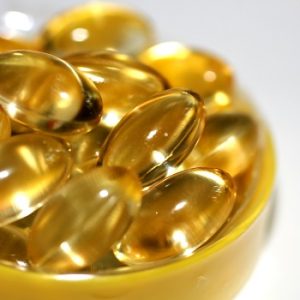
More evidence that low-calorie sweeteners are bad for your health
Studies show that artificial sweeteners can raise the risk of hypertension, metabolic syndrome, type 2 diabetes and heart disease, including stroke.

Natural Health News — Raising your intake of vitamin E may be linked to a lower risk of gallstone disease, according to new research data.
Gallstones are hardened deposits of digestive fluid that form in the gallbladder. The most common type is composed mainly of undissolved cholesterol. Although they can range in size from a grain of sand to a golf ball, people may live with gallstones for years without experiencing any symptoms.
The most common symptoms are intensifying pain in the upper right portion of your abdomen or in the centre of your abdomen, just below your breastbone, pain between your shoulder blades or in your right shoulder and nausea and vomiting.
In this study, led by researchers from the University of Kiel, in Germany, 582 people (average age 62) had lower blood levels of alpha-tocopherol than those who did not have gallstones.
» Previous research has also found reduced vitamin E absorption in people with gallstones; but it isn’t clear if the poor absorption or the gallstones come first.
» In a new study scientists measures blood levels of both alpha-and gamma-tocopherol in older individuals with gallstones disease.
» Those with the highest levels of alpha-tocopherol were nearly 70% less likely to develop gallstones.
Double checking the measurements
The scientists took blood samples from the subjects, from which total and low-density lipoprotein (LDL) cholesterol and two different forms of vitamin E (alpha- and gamma-tocopherol) were measured.
Vitamin E isn’t just a single nutrient but in fact is a family or complex of 10 fat-soluble compounds (in much the same way as the B-complex family). The ten forms of vitamin E are divided into two groups; five are tocopherols and five are tocotrienols. Both types are usually differentiated with prefixes like include alpha-, beta-, gamma- and delta-.
Writing in the journal Nutrients, they note that that those with the highest blood level of alpha tocopherol had around 70% less risk of developing gallstones. A similar association was found with gamma-tocopherol levels. However, with the gamma form, the results were not as powerful.
In individuals with impaired flow of bile from the liver to the duodenum vitamin E status may be more accurately established by measuring the ratio of alpha-tocopherol to cholesterol in the blood. Here too, those with gallstone disease also had a lower ratio of alpha-tocopherol to cholesterol in the blood – but again the effect was less pronounced with gamma-tocopherol.
Lowering oxidative stress
According to the scientists, oxidative stress and free radicals are thought to play a role in gall bladder disease development. Thus, higher vitamin E might help protect against oxidative stress, reducing the risk of gallstones, hypothesised the scientists.
Previous research has also found reduced vitamin E absorption in people with gallstones, and that the disturbance of bile secretion in gallbladder disease is associated with fat-soluble vitamin deficiencies.
Many of us do not get enough vitamin E in our daily diets. There are not many large studies looking at vitamin E supplementation as a preventative for gallstones and according to senior researcher Professor Wolfgang Lieb, it still needs to be established “if, and to what, extent dietary vitamin E supplementation may prevent gallstone formation.”

Please subscribe me to your newsletter mailing list. I have read the
privacy statement